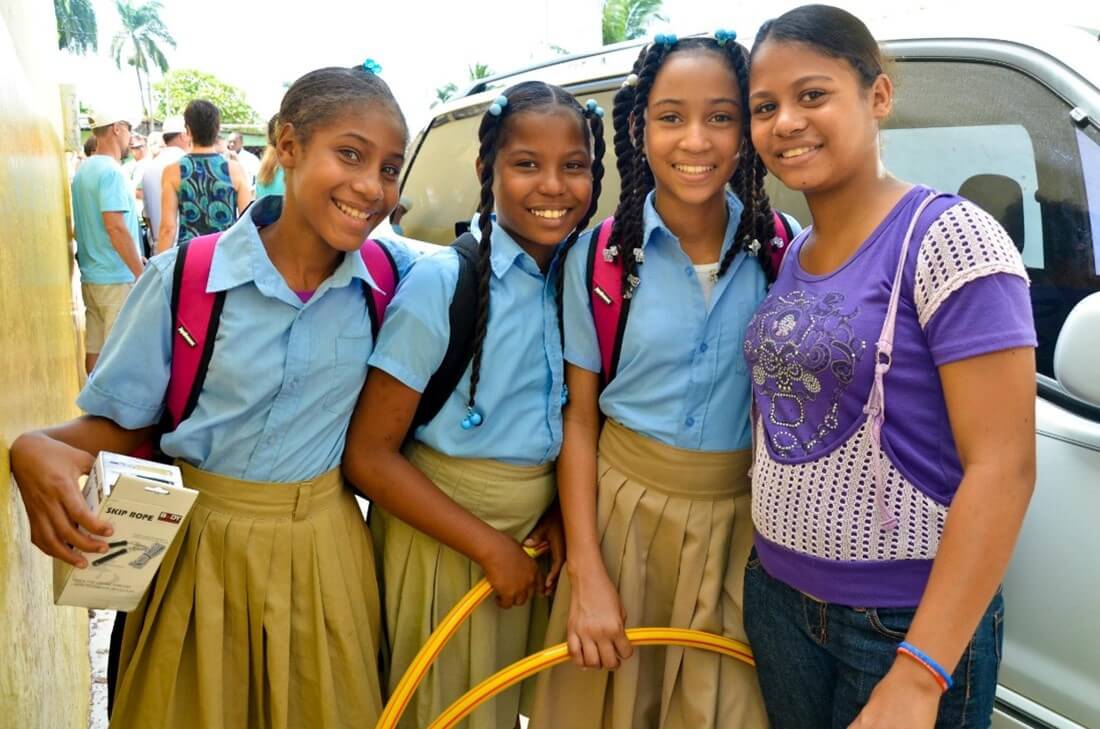The Ultimate House Viewing Checklist for Buyers
06 Jan
Please wait...
22 Feb

Excelling is arduous for many Dominican youth. On top of the traditional difficulties of just being a kid trying to fit in and learn about and understand the world, a large percentage of the Dominican Republic's youth face inadequate education and cyclical poverty.
More than 40 percent of Dominican children are uneducated, and only 60 percent complete their primary education (humanium.org). Many families encourage their kids to drop out of school and work full time to help support the family. Approximately 17 thousand children who participate in the labor force do so without attending school. The percentage is particularly high for boys and for youth who live in rural areas (sos-usa.org).
Also, kids living in rural areas, as well as migrant children, do not have easy access to schools (humanium.org). In addition, a large number of children and adolescents are denied entrance into school because they are considered stateless (do not have documents).
The quality of education in the Dominican Republic is dismal. The country ranks as one of the lowest in the world in studies of education levels and quality of education (mnnonline.com). According to a Dominican University study, even those who get through high school and complete 12 years of school start college at a sixth-grade reading level (dw.com).
"Teachers are poorly trained, scholastic programs are ill-suited to the needs of the students, and school buildings stand in dire need of repair" (humanium.org). Schools are overcrowded. Students often have to repeat grades due to inadequate instruction, and the ratio of students to teachers is quite high. Over 50 percent of the teachers do not have a teaching diploma (socialwatch.org), and the pay for teachers is extremely low.
Most of the population can be divided into two extremes: the very rich and the very poor. More than 40 percent of the Dominican Republic's population lives below the poverty line (humanium.org). "Approximately one-fifth of all Dominicans live in shacks, the vast majority of them without access to running water, proper sanitation, and electricity. Roughly 20 percent of the Dominican Republic's population is struggling to make a living on less than two US dollars a day" (sos-usa.org).
Extreme poverty adversely affects children's health, education, and work (humanium.org). Children most likely to be living in poverty include those of single mothers and immigrants as well as those living in rural regions (humanium.org). Densely populated urban areas have high poverty levels and many children living without parents on the streets. "More than one million children in the Dominican Republic live in poverty, and roughly 578 thousand children under the age of 15 are without parental care. Around 20 percent of them are orphans" (sos-usa.org). These children survive by jumping into busy streets and washing car windows for a living (cronkite.asu.edu).
Gangs, crime, and youth violence also stem from poverty. The scarcity of resources may push young people into unsustainable and dangerous survival activities, often creating violent neighborhoods where youth can find a sense of social support and acceptance in gangs (en.wikipedia.org). According to the 2012 Latin American Public Opinion survey, 48.6 percent of Dominican neighborhoods have been affected by gangs (en.wikipedia.org).
Breaking free from the unfortunate circumstances of poor education and deep poverty is difficult, but with the right guidance and mentorship, not impossible. Success is teachable. If you have successfully made it through school, established financial stability, have a good job, or all of the above, Kayifi Outreach wants to hear from you!
Calling all professionals, experts, and entrepreneurs, please join Kayifi Outreach in helping the Dominican Republic's youth. Encouraging young people to set goals, work hard, and pursue their talents can make a huge difference in their lives, future, and general well-being! Just send in a video or other media that shares your advice, insight, knowledge, and skills. We will share your message with those who need to hear it the most.
Click Here for more information.
Sources:
cronkite.asu.edu
dw.com
en.wikipedia.org
humanium.org
mnnonline.com
socialwatch.org
sos-usa.org